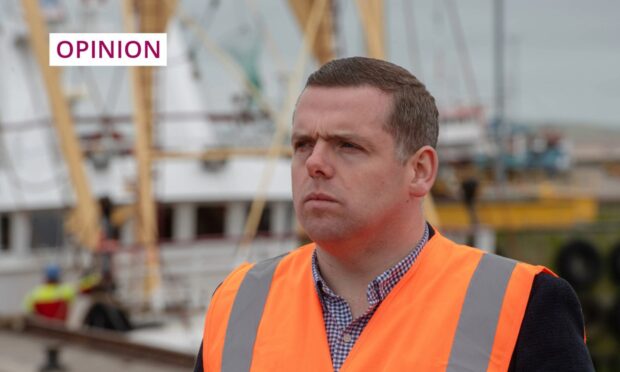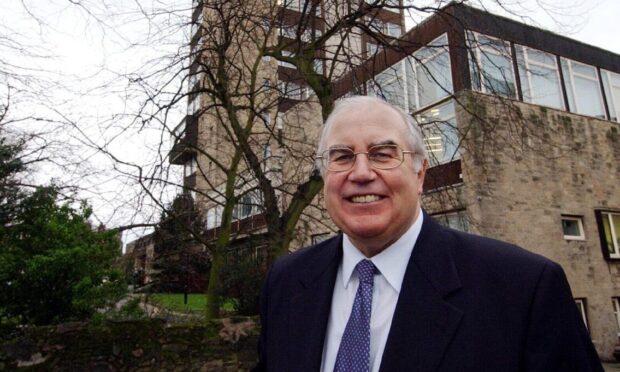Douglas Ross settled scores and reflected on his flaws in an interview this week, admitting he was paranoid about internal plotting.
But for those who watched his leadership inside and outside of the Scottish Conservatives, it was no surprise to hear.
At a questions-and-answers session on Tuesday, the outgoing leader was forced to look inward. It wasn’t all score-settling.
While he can be portrayed as a fairly two-dimensional character, he did reflect on his flaws, politically and personally.
He is, after all, a family man who wants to protect his children from reading incredibly insulting words about him – not least a giant banner with a deeply offensive term about him held up by Celtic fans.
But sensible senior politicians need to be able to take the rough with the smooth. A thick skin is a political necessity.
He is also contradictory. He admits he probably took on the job too soon – which affected his management of a fractious party – but at the same time thinks he was the only man able to do it.
Tory paranoia
In a swipe at scheming inside his party, Mr Ross appeared to concede a paranoia about the “calculating ba****ds” who briefed against him.
But the problem with such a leader is that it is rarely confined to their office.
At times, Mr Ross’ approach filtered down and poisoned the party’s tone, harming efforts to win over voters.
Tory MP hopeful refused to engage after difficult coverage
It is best summed up by a recent example where an MP hopeful in Angus refused to speak to The Courier after his defeat at the hands of the SNP.
Stephen Kerr was unhappy with The Courier’s coverage of a hustings where he accused the audience of intimidation, and disliked a story I reported about the party’s candidate in Arbroath and Broughty Ferry who had distributed a leaflet which had no obvious party branding.
It is one of several incidents which betrayed an apparent belief that scrutiny was simply persecution.
But the refusal by Stephen Kerr to engage after a perceived slight in the heat of an election campaign betrays a brittle approach to media relations, one that successful politicians are usually able to overcome – all too aware that they will never receive glowing coverage all the time.
Ousting of unwell candidate led to furious internal briefings
Although introspective at points, Douglas Ross’ analysis of his shortcomings as a leader remain limited.
His analysis of those he says plotted against him forgets that his MSP group only really turned on him after the party forced its candidate in Aberdeenshire North and Moray East to stand aside, apparently on health grounds.
Mr Ross had repeatedly pledged to stand down from Westminster so he could focus on his leadership role in Edinburgh, but went ahead and stood in his place.
Surprisingly, Mr Ross has since said he would not have stood in the general election if he thought he did not have a chance of winning.
Douglas Ross ‘revels in siege mentality’
Even if he hadn’t taken part, he told the audience in Edinburgh there would have been calls for him to stand down as leader given the dismal result nationally.
Tory insiders say Mr Ross revels in a siege mentality, and would have loved a brawl for his position, motivated by a “me versus them” survival fight.
As the Scottish Tories search for their next leader, the personality may prove as important as the policy.












Conversation